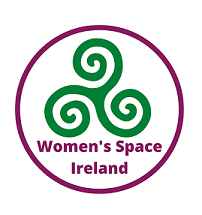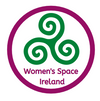Estelle Birdy spoke at a meeting in Galway on 4th March 2024; this is what she had to say about the 40th "care" amendment.
Currently Article 41.2 recognises the value to society of women's work in the home and goes further to state that the State will endeavour to ensure that mothers are not obliged through economic necessity to work outside the home to the neglect of their duties inside the home.
The Yes campaign is asking us to remove the recognition of women's work, remove the words women, mother, home and crucially, that obligation on the State to financially support women who choose to stay at home. Or at least, to endeavour to ensure to do so.
The UN Universal Declaration of Human Rights Article 25, which has been ratified by the State, states that motherhood and childhood are entitled to special care and assistance. The Irish Constitution as it currently stands, in 41.2, reflects this. The content of Article 41.2 has been used in court already, in taxation cases and in family law cases involving maintenance.
Former Attorney General, Senator Michael McDowell, has said that this imposes a direct obligation upon the State to financially support mothers who chose to remain in the home and raise their own children. Geoffrey Shannon who was the Rapporteur on Child Protection, now a judge, has stated that 41.2 underpins Ireland's very woman-friendly spousal maintenance regime.
And upcoming, in April, the month after we may have removed this protection for mothers, there is a case of a mother who is caring for her son. I believe he's in his late teens and with 24-7 care that she has to give him she is citing Article 41.2 too. So if we get rid of it, no Article 41.2, no case. I can imagine this focused some minds in Government last Autumn when this was moved to the Supreme Court.
So why would anyone be looking to remove the reference to motherhood plus our economic protection, from the Constitution? We are being told that Article 41.2 is variously: sexist, the language is sexist, it oppresses women, it limits our roles, it hampers our careers. Why doesn't it mention fathers, they cry? It says a woman's place is in the home, it underpinned the marriage bar and is somehow involved in the horrific cases of Joanne Hayes and Anne Lovett.
Let's take sexist language first, the yes side is unable to point to what exactly is sexist or oppressive in Article 41.2. As regards the language, is it the word 'woman', is it the word 'mothers', is it 'home' or is it 'duties in the home'? We'll take that last one as it's possibly the most contentious.
So I worked in recruitment for years. Any job specification will list the duties of the job. Work in the home is work. And it is your duty as a stay at home mother or father, to feed, clothe, clean and shelter your children. It is your duty to care for them. This language is only sexist if you think motherhood is sexist. It oppresses or limits women or women's place in the home? Totally untrue. The yes side can't produce a single example of a woman who has been oppressed, whose role has been limited, whose career has been limited. Not a single one. And in fact, many of the people, the women, who are calling for this yes vote are shining examples of how their careers were not impeded. They are very successful women, in the outside world.
Ms Justice Susan Denham, who was referred to already in the Sinnott case, stated that the Constitution and 41.2 does not limit women's roles at all to roles in the home. And Ms Justice Marie Baker is blue in the face explaining repeatedly that it is not the case that the Constitution says that a woman's place is in the home or even implies it.
As for the marriage bar: this predated the 1937 Constitution by some 13 years and was actually a relic of the British state, instituted in the 1870s. Art 41.2 has nothing to do with the marriage bar. Marriage bars were in place in countries all over the western world, including Britain, America, New Zealand, Australia and we got rid of it only three years after our people up in Northern Ireland got rid of their marriage bar.
So, as for Anne Lovett and Joanne Hayes, I don't think it's even worth discussing that you would use those cases to further your yes campaign to have women and mothers removed from the Constitution.
The fathers not being mentioned? Yes, I totally agree, recognize the value to society of men, fathers. Good fathers are really important in the domestic sphere, add in a clause that gives protection to either parent and the financial protection to either parent, if that's what they choose to do. I'd like to ask those, however, who are pointing out this great lack of fathers as if that's where the sexism stems from: have they ever actually mooted putting fathers into the Constitution? Is that what they suggested, did they suggest putting these things in and protections for fathers? And the answer is, no. None of them did. That was not the wording. What they've proposed to do is just to remove mothers. They didn't suggest adding fathers, at any point.
So, with no evidence of women being materially detrimentally affected by Article 41.2, and no ability to point to the wording that is sexist, the yes side is now wholly relying upon symbolism as the basis for its argument in favour of deleting mothers and their economic protection.
What a load of nonsense. We're symbolically oppressed and limited. But some women are actually limited in their choices, their reproductive choices, in fact. Most of the women calling for the deletion of mothers, have not been limited in this respect. Most of them, and here's where this becomes a class issue, could have stayed at home. They could afford to do this, but they wanted to go out to work and they were not impeded at all. It would have been Constitutionally unsound to do so in any case, because we have a protection that women and men equally in Article 45 can go out and earn a livelihood. So it would have been unconstitutional.
So these women never faced the agonising choice of staying at home with their sick child, losing a day's pay, and risking the loss of their minimum wage job or leaving their sick child. The woman down the flats didn't know that the State has a direct obligation to support her, should she choose to stay at home. And her sisters in the NWCI were never going to tell her while they were demanding that her right to choose should be removed.
A recent Amárach research poll, found that 69% of women, if finances were not an issue, would prefer to stay at home for a little or a long time, to raise their own children, and that's in-line with all previous surveys. This reproductive right doesn't matter though to the career feminists and to the people who are calling for the removal of the protection for mothers. The right to have kids and raise them ourselves doesn't matter to them.
So back to the symbolic sexism, the Irish Constitution, in terms of property rights and the protocols for TDs, Ministers, refer 112 times to men or male pronouns. We are to assume that where the Constitution refers to 'man' it means 'man or woman' and where it refers to 'he' it means 'he or she'. So that's fine. 112 times. By contrast there are just six references to women or female pronouns, three of which are in Art41.2. So how's that for symbolic sexism?
Have any of us ever heard from the people who want to remove "mothers" and "woman" from Article 41.2 and the economic necessity clause talk about that symbolic sexism? Have they ever said 'this language is really sexist, we've got men, fathers, all over this'? But that's not a problem, the problem is the one clause that mentions mothers, that's the one that's sexist, that's the one we've got to get out of the Constitution.
So, go figure, why would they want to do that? Mother and motherhood has never been, and never will be, gender neutral.
Vote no to removing "woman", "mothers" and their financial protection.


